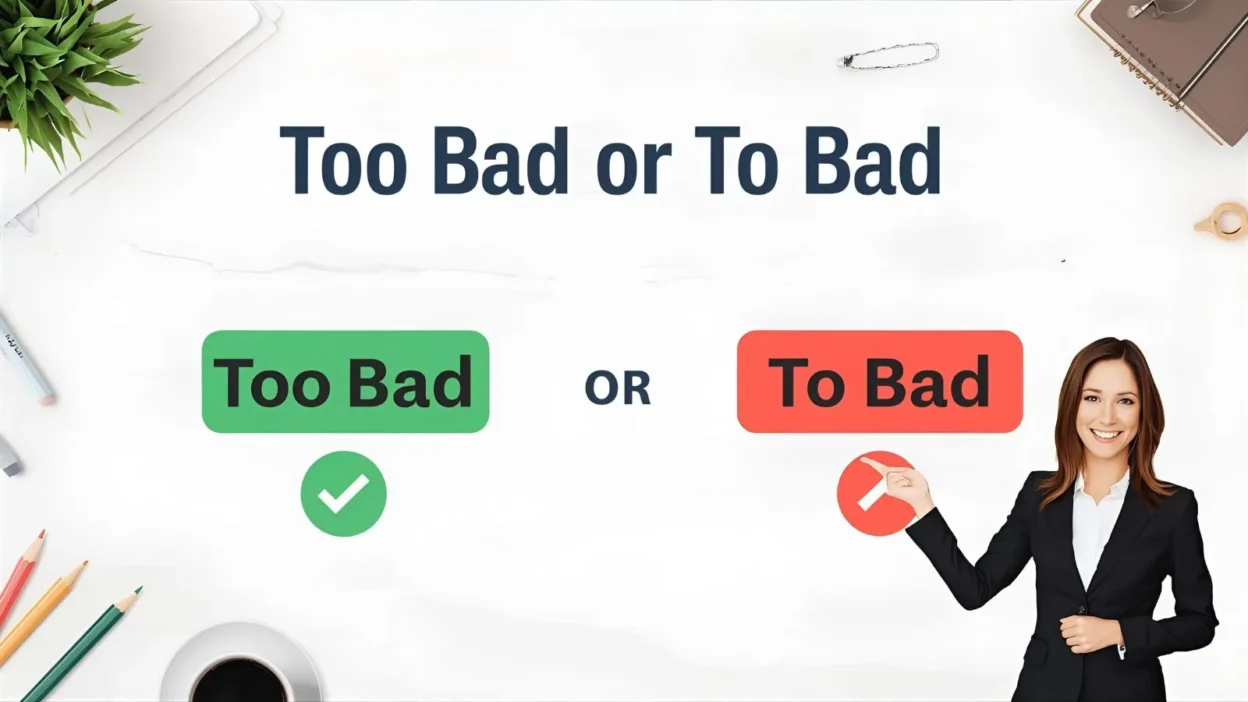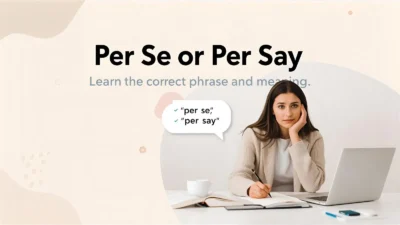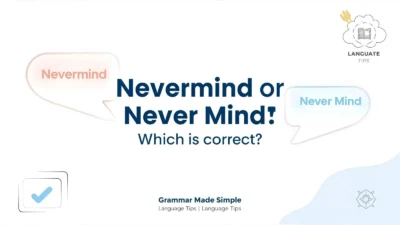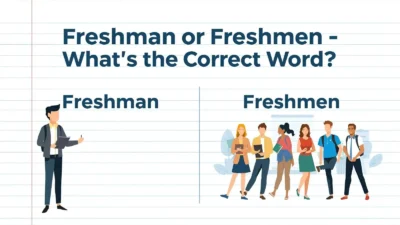Have you ever paused mid-text wondering if it’s too bad or to bad? You’re not alone! I’ve seen this confusion pop up everywhere—from casual chats to professional emails.
The words sound the same but mean very different things in writing. If you’ve searched this up, you’re already smarter than most because you care about getting it right.
Stick with me till the end — I’ll make sure you never mix them up again. 🌟
Too Bad or To Bad – Quick Answer 💡
The correct phrase is “too bad”, not “to bad.”
✅ Too bad means something unfortunate or disappointing.
Example: It’s too bad we missed the concert.
❌ To bad is grammatically incorrect. “To” is a preposition, and it doesn’t make sense before “bad.”
Example (Wrong): It’s to bad you’re leaving.
Remember: “Too” = “very” or “excessively.” If you can replace it with “very” and the sentence still makes sense, it’s “too,” not “to.”
The Origin of “Too Bad” 📜
The word “too” comes from Old English tō, which originally meant “in addition” or “excessively.” Over time, it evolved to describe something done “beyond normal limits.”
The phrase “too bad” started appearing in English texts during the 1800s, expressing sympathy or regret. Its simplicity and emotional tone made it common in both spoken and written English.
So, “too bad” has historical roots tied to human emotion—pity, disappointment, or mild annoyance.
British English vs American English Spelling 🇬🇧🇺🇸
Interestingly, “too bad” is spelled and used the same way in both British and American English. The difference lies only in how often it’s used.
| Region | Common Expression | Example Sentence |
|---|---|---|
| American English | Too bad | “It’s too bad the store closed early.” |
| British English | Too bad / What a shame | “Too bad we couldn’t go; what a shame.” |
| Australian English | Too bad / Bad luck | “Too bad, mate. Maybe next time.” |
No matter where you’re from, “too bad” is universally correct.
Which Spelling Should You Use? ✍️
Always use “too bad.”
If you’re writing for:
- US Audience: Use “too bad” naturally in both casual and professional tones.
- UK/Commonwealth Readers: “Too bad” works, though “what a shame” may sound more native.
- Global Audience: Stick with “too bad” — it’s recognized worldwide and grammatically correct everywhere.
Simple rule: ❌ never “to bad,” ✅ always “too bad.”
Common Mistakes with “Too Bad” 🚫
Here are a few frequent mix-ups:
| Mistake | Why It’s Wrong | Correct Form |
|---|---|---|
| It’s to bad you’re late. | “To” doesn’t describe intensity. | It’s too bad you’re late. |
| I feel to bad for him. | Wrong preposition. | I feel too bad for him. |
| That’s to bad of him. | Incorrect usage. | That’s too bad of him. |
👉 Tip: If you can replace “too” with “very,” it’s correct. If not, rethink your sentence.
“Too Bad” in Everyday Examples 💬
Here’s how you’ll see it in real life:
Emails:
- “It’s too bad we couldn’t finalize the project today.”
Social Media:
- “Too bad it rained during our picnic 😅.”
News Headlines:
- “Too Bad: Local Team Misses Championship by One Point.”
Formal Writing:
- “It’s too bad that unforeseen circumstances affected the results.”
Notice how “too bad” expresses mild disappointment — perfect for both personal and professional tones.
“Too Bad” – Google Trends & Usage Data 📊
Search data shows that “too bad” is used over 95% of the time, while “to bad” barely appears — mostly from spelling mistakes.
| Country | Popular Term | Search Percentage |
|---|---|---|
| United States | Too bad | 97% |
| United Kingdom | Too bad | 94% |
| Canada | Too bad | 96% |
| India | Too bad | 93% |
Globally, “too bad” remains the clear favorite — proving it’s not just correct but also universally understood.
FAQs About “Too Bad or To Bad”
1. Is it ever correct to write “to bad”?
No, “to bad” is always incorrect in this context.
2. What does “too bad” mean?
It means unfortunate, disappointing, or expressing sympathy.
3. Can “too bad” sound rude?
Sometimes — if said sarcastically. Tone matters!
4. Is “too bad” formal or informal?
It’s neutral — fine for both casual and professional writing.
5. Can I use “too bad” instead of “what a pity”?
Yes! They mean nearly the same thing.
6. Is “too bad” an idiom?
Yes, it’s considered an idiomatic expression of regret.
7. Why do people confuse “to” and “too”?
Because they sound the same, but their meanings differ completely.
Conclusion 🌈
So, the next time you write, remember — it’s always “too bad,” never “to bad.” The word “too” adds emotion, meaning “very” or “excessively,” while “to” simply points direction. Knowing the difference helps your writing sound polished and professional.
If you’ve ever second-guessed your spelling, don’t worry — now you know exactly when and how to use it. Keep practicing, stay confident, and never say “to bad” again! 😉

I’m Emma Collins, a grammar expert and author at Grammarnestly.com. I love helping readers master English with simple, practical grammar guides.
When I’m not writing, I enjoy reading, coffee, and exploring the beauty of language.



